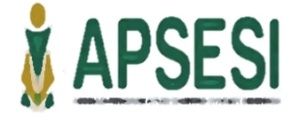Implementation of Human Capital Management on Economic Performance in Indonesia: An Islamic Legal Perspective
Abstract
This research aims to investigate the influence of Human Capital Management from an Islamic legal perspective on economic performance, focusing on implementation in Indonesia. Research methods include qualitative research with the use of library research to explore relevant reference sources. Besides that, the approach in this research is juridical-normative to analyse the concepts of Human Capital Management, recruitment, selection, training and performance management. This research also considers the legal and ethical aspects of human resource management. In analysing the concept of Human Capital Management, this research highlights human capital development strategies. By law economy Islam, this research explores Islamic principles in human resource management. The research results show that Human Capital Management can improve economic performance, create an ethical work environment, and positively contribute to sustainable economic development. Meanwhile, from an Islamic law perspective, human capital is still in line with elements of Sharia economic law in terms of wages, employee development, and conformity with Islamic principles in classifying people in the world of work. Thus, the implementation of Human Capital Management, which pays attention to Islamic values , not only supports business growth but is also in line with the principles of justice and prosperity in Indonesia.
Keywords
Full Text:
PDFReferences
Afni, N. (2019). Pengaruh Hubungan Human Capital dan Relational Capital Terhadap Produktivitas Kerja Karyawan PT PLN (Persero) Wilayah Sulsel Ra Bar. Universitas Muhammadiyah Makassar.
Al Maududi. (1980). Ekonomi Islam (2nd ed.).
Amir Arham dan Tresya F. (2015). Public expenditures and poverty: evaluation of the government’s priority programs in Gorontalo Province. Journal of Economic and Financial Sciences, 7(October), 107.
Andrew Mayo. (2000). The role of employee development in the growth of intellectual capital. Emerald Insight, 29(4), 34.
Basuki. (2000). Perkembangan metode pengukuran human asset dan pengungkapannya dalam konsep human resource accounting. Economic Journal, 1, 11.
Dunford, B. B., Snell, S. A., & Wright, P. M. (2001). W ORKING P APER S ERIES Human Resources and the Resource Based View of the Firm and the Resource Based View of the Firm. Journal of Management, 1–35.
Goldin, C. D. (2016). Human capital. Springer Verlag.
Gupta dkk. (2016). Human Resource Management Practices and Organizational Effectiveness: Internal Fit Matters. Journal of Organizational Effectiveness: People and Performance, 2, 163.
Guthrie, J. (2001). The Management, Meansurement and the Reporting of Intellectual Capital. Journal of Intellectual Capital, 1(5).
Hasibuan dkk. (2008). Manajemen Sumber Daya Manusia. Bumi Aksara.
Hidayat dkk. (2002). Metodologi Penelitian. Mandar Maju.
Kalbi, N. (2020). Pengaruh Human Capital dan Total Quality Management Terhadap Kinerja ASN Pada Dinas Pekerjaan Umum Dan Tata Ruang Provinsi Sulawesi Selatan. Universitas Muhammadiyah Makassar.
Kasmawati, Y. (2017). Human Capital dan Kinerja Karyawan (Suatu Tinjauan Teoritis). JABE (Journal of Applied Business and Economic), 3(4), 266.
Kusyanto, A. (2019). Peran Pembiayaan Sosial Islam Terhadap Indeks Human Capital di Indonesia. Jurnal Qolamuna, 5, 34.
Markus dkk. (2006). Employee Opinion Survey. Human Capital, 29, 36.
Marlina, M. (2020). Pengaruh Value Added Capital Employed, Value Added Human Capital, Structural Capital value Added, Terhadap Price To Book Value. Universitas Katolik Darma Cendika Surabaya.
Maryudanto, B. (2020). Pengaruh Human Capital dan Structural Capital Terhadap Kinerja Karyawan (Studi Kasus Pada Perum LPNPPI AirNav Indonesia). Universitas Islam Negeri Syarif Hidayatullah Jakarta.
Massingham, P. R., & Tam, L. (2015). The relationship between human capital, value creation and employee reward. Journal of Intellectual Capital, 16(2), 390–418.
Maulidia, R. (2017). Pengaruh Human Capital dan Time Budget Pressure Terhadap Kualitas Audit Dengan Budaya Etika Organisasi Sebagai Variabel Intervening dan Moderating (Studi Empiris pada KAP di Kota Semarang dan Ernst & Young di Jakarta). Universitas Diponegoro.
McPhail dkk. (2011). Hospitality HRM: Past, Present and the Future. International Journal of Contemporary Hospitality Management, 4, 23.
Olaniyan, D. A., & Okemakinde, T. (2008). Human capital theory: Implications for educational development. European Journal of Scientific Research, 24(2), 157–162.
Olaniyan dkk. (2008). Human Capital Theory. Journal of Social Sciences, 5, 50.
Oxford Dictionary (4th ed.). (2021). Oxford University Press.
Peter dkk. (2015). The Relationship Between Human Capital, Value Creation, and Employee Reward. Journal of Intellectual Capital, 16, 2.
Prasojo dkk. (2017). Manajemen Strategi Human Capital dalam Pendidikan. Yogyakarta: UNY Press, 3, 24.
Qardhawi, Y. (1980). Halal dan haram dalam Islam. Himpunan Belia Islam.
Steen, A. (2011). Conflicting Conceptualization of Human Resource Accounting. Journal of Human Resource Accounting, 15, 14.
Sunggono, B. (2003). Metodologi penelitian hukum. Raja Grafindo Persada.
Syafarudin, A., & Hertati, L. (2020). Penerapan Human Capital serta dampaknya terhadap Kualitas Pelayanan Pada Sistem Informasi Manajemen. Is The Best Accounting Information Systems and Information Technology Business Enterprise This Is Link for OJS Us, 5(1), 34.
Tanjung dkk. (2013). Pengungkapan Informasi Human Capital Dalam Laporan Tahunan PT.PLN Persero Distribusi Jawa Timur. Jurnal Ekonomi Dan Bisnis, 3, 64.
Triyuwono dkk. (2016). Fenomenologi Sumber Daya Manusia Sebagai Aset Intelektual dalam Amal Usaha Muhammadiyah. Journal of Accounting and Investment, 1, 17.
Weatherly, L. A. (2003). The Value of People : The Challenges and Opportunities of Human Capital Measurement and Reportin. SHRM Research, 7.
Yasin, M. (2018). Politik Hukum Ekonomi Syariah di Indonesia. UIN-Maliki Press.
DOI: http://dx.doi.org/10.30984/tjebi.v8i2.2773
Article Metrics
Abstract view : 533 timesPDF - 239 times
Refbacks
- There are currently no refbacks.
Copyright (c) 2023 Tasharruf: Journal Economics and Business of Islam
License URL: https://creativecommons.org/licenses/by-nc/4.0/
Tasharruf: Journal Economics and Business of Islam is indexed by:
 |
 |
 |
 |
 |
|
 |
 |

This work is licensed under a Creative Commons Attribution-NonCommercial 4.0 International License.
________________________________________________________
Tasharruf: Journal Economics and Bussiness of Islam is published by Fakultas Ekonomi dan Bisnis Islam, Institut Agama Islam Negeri (IAIN) Manado
Jl. Dr. S. H. Sarundajang Kawasan Ring Road I Malendeng Manado, Sulawesi Utara, Indonesia 95128
Email: [email protected]
ISSN Print: 2528-0317 ISSN Online: 2528-0325












1.png)


